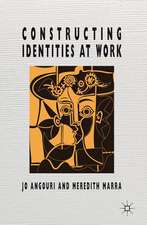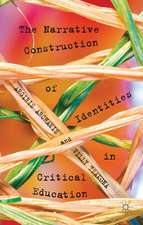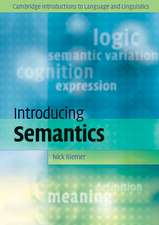The Exercise of Power in Communication: Devices, Reception and Reaction
Editat de R. Schulze, H. Pishwaen Limba Engleză Hardback – 5 mai 2015
| Toate formatele și edițiile | Preț | Express |
|---|---|---|
| Paperback (1) | 386.46 lei 6-8 săpt. | |
| Palgrave Macmillan UK – 2015 | 386.46 lei 6-8 săpt. | |
| Hardback (1) | 391.01 lei 6-8 săpt. | |
| Palgrave Macmillan UK – 5 mai 2015 | 391.01 lei 6-8 săpt. |
Preț: 391.01 lei
Nou
Puncte Express: 587
Preț estimativ în valută:
74.89€ • 77.15$ • 62.73£
74.89€ • 77.15$ • 62.73£
Carte tipărită la comandă
Livrare economică 22 februarie-08 martie
Preluare comenzi: 021 569.72.76
Specificații
ISBN-13: 9781137478375
ISBN-10: 1137478373
Pagini: 360
Ilustrații: XIII, 337 p.
Dimensiuni: 140 x 216 x 26 mm
Greutate: 0.55 kg
Ediția:2015
Editura: Palgrave Macmillan UK
Colecția Palgrave Macmillan
Locul publicării:London, United Kingdom
ISBN-10: 1137478373
Pagini: 360
Ilustrații: XIII, 337 p.
Dimensiuni: 140 x 216 x 26 mm
Greutate: 0.55 kg
Ediția:2015
Editura: Palgrave Macmillan UK
Colecția Palgrave Macmillan
Locul publicării:London, United Kingdom
Cuprins
1. Power Exercise: Devices, Reception, and Reactions; Hanna Pishwa and Rainer Schulze PART I: SOCIAL ASPECTS OF POWER EXERCISE IN LINGUISTICS 2. The Significance of 'The Social' in Contemporary Linguistics; Rainer Schulze 3. Meaning Ruptures and Meaningful Eruptions in the Service of Rhetoric: Populist Flare-up Hits the Greek Political Pitch; Eliza Kitis and E. Dimitris Kitis PART II: LINGUISTIC CUES FOR POWER EXERCISE AND PERSUASION 4. Power Under the Veil of Democracy; Anders Hougaard 5. Information Source as Persuasive Power in Political Interviews: The Case of Obama; Hanna Pishwa 6. Using Language as a Weapon: Verbal Manifestations of Contemporary Anti-Semitism; Monika Schwarz-Friesel PART III: LINGUISTIC ELEMENTS AND THEIR INFLUENCE ON THE RECIPIENT 7. Gender, Power, and the Human Voice; Alexandra Suppes 8. Leveraging Processing to Understand Linguistic Cues, Power, and Persuasion; Traci Craig, Kevin L. Blankenship, and Annie Lewis 9. Powerful and Powerless Speech Styles and their Relationship to Perceived Dominance and Control; Lawrence Hosman 10. Language Intensity as an Expression of Power in Political MessageS; Mark A. Hamilton PART IV: FOCUS ON THE INFLUENCE OF POWERFUL MESSAGES AND REACTIONS 11. Persuasion and Psychological Reactance: The Effects of Explicit, High-controlling Language; Claude H. Miller 12. Antidominance as a Motive of Low-power Groups in Conflict; P. J. Henry 13. Understanding Power in Social Context: How Power Relates to Language and Communication in Line with Responsibilities or Opportunities; Annika Scholl, Naomi Ellemers, Kai Sassenberg, and Daan Scheepers
Recenzii
“Schulze and Pishwa successfully present a workable framework to help us understand and explore the expression of power relations. Furthermore their comprehensive, cross-discipline approach makes for a diverse set of fascinating case studies. … Even for those not well-versed in linguistic subfields, this collection offers an excellent insight into the use and manipulation of language.” (Communication Director, Vol. 4, 2015)
Notă biografică
Kevin Blankenship, Iowa State University, USA Traci Y. Craig, University of Idaho, USA Naomi Ellemers, University of Leiden, the Netherlands Mark Hamilton, University of Connecticut, Storrs, USA PJ Henry, New York University, Abu Dhabi, United Arab Emirates Lawrence Hosman, University of Southern Mississippi, USA Anders Hougaard, University of Southern Denmark E. Dimitris Kitis, University of the Witwatersrand, Johannesburg, South Africa Eliza Kitis, Independent Scholar Ann M. Lewis, Iowa State University, USA Claude Miller, University of Oklahoma, USA Hanna Pishwa, Technical University of Berlin, USA Kai Sassenberg, University of Tübingen, Germany Daan Scheepers, University of Leiden, the Netherlands Annika Scholl, Knowledge Media Research Center, Tübingen, Germany Rainer Schulze, Leibniz University of Hanover, Germany Monika Schwarz-Friese, Technical University of Berlin, Germany Alexandra Suppes, Columbia University, USA















